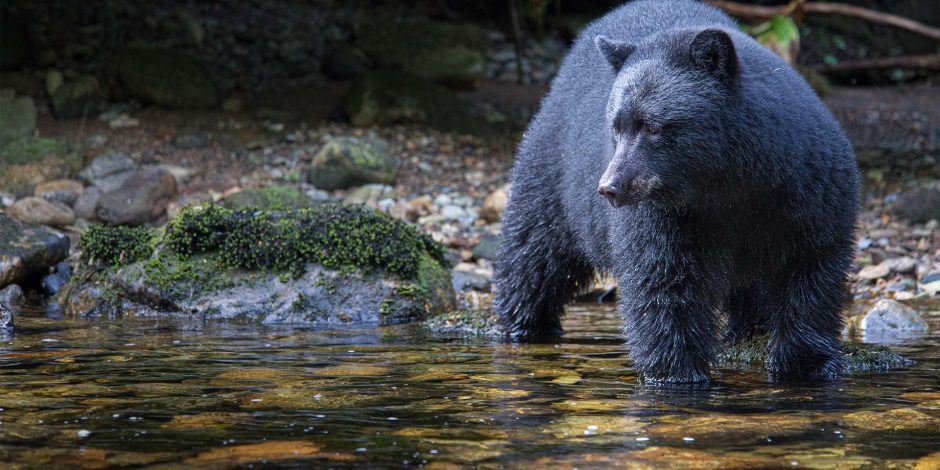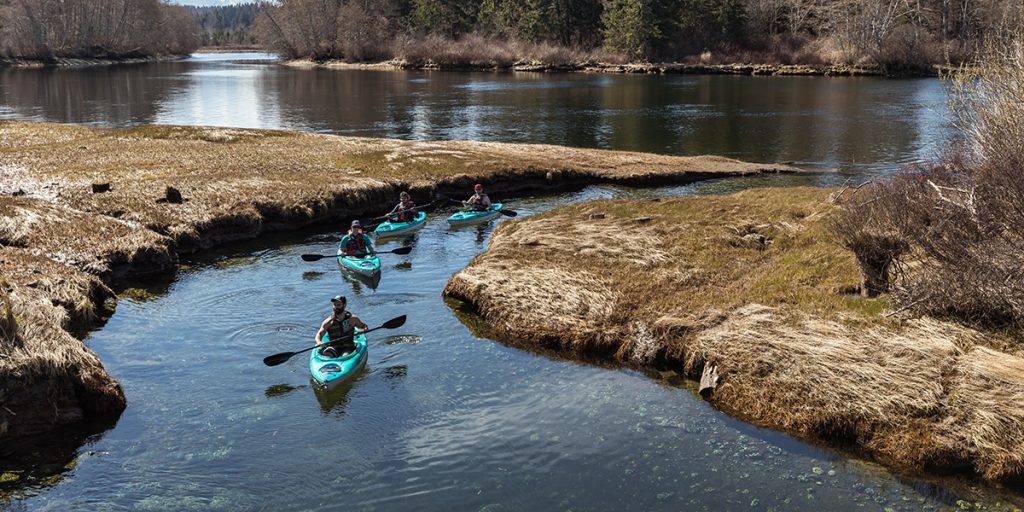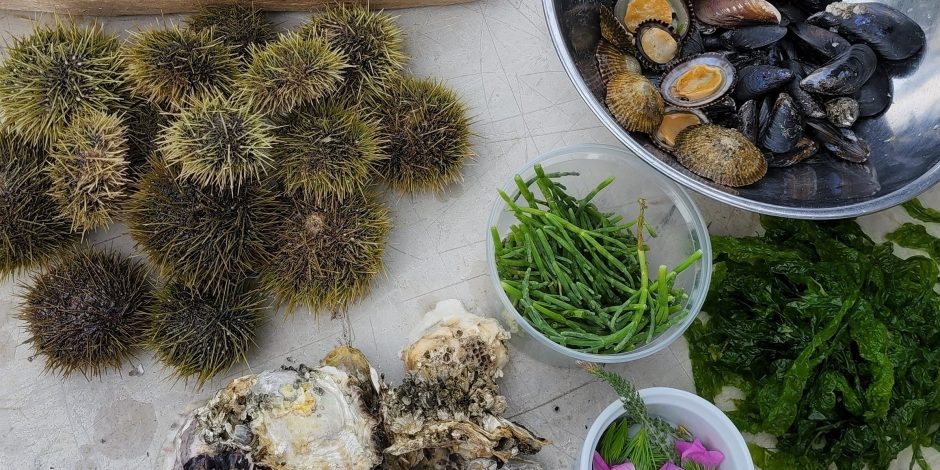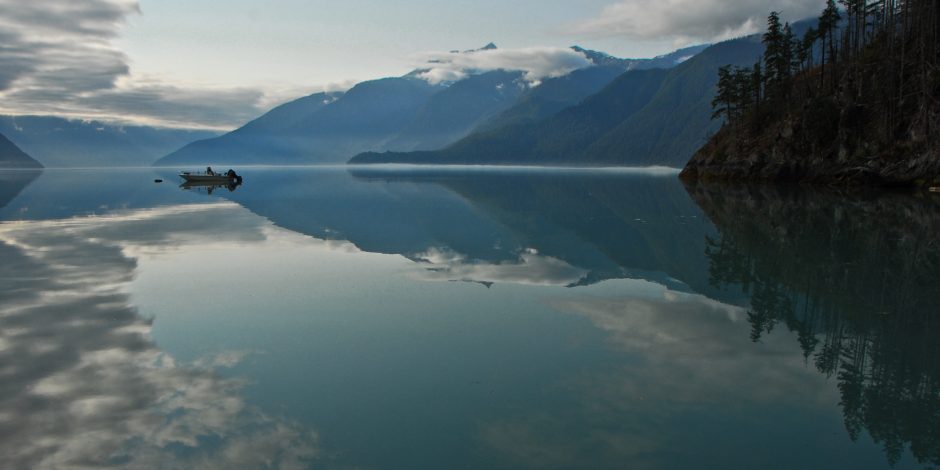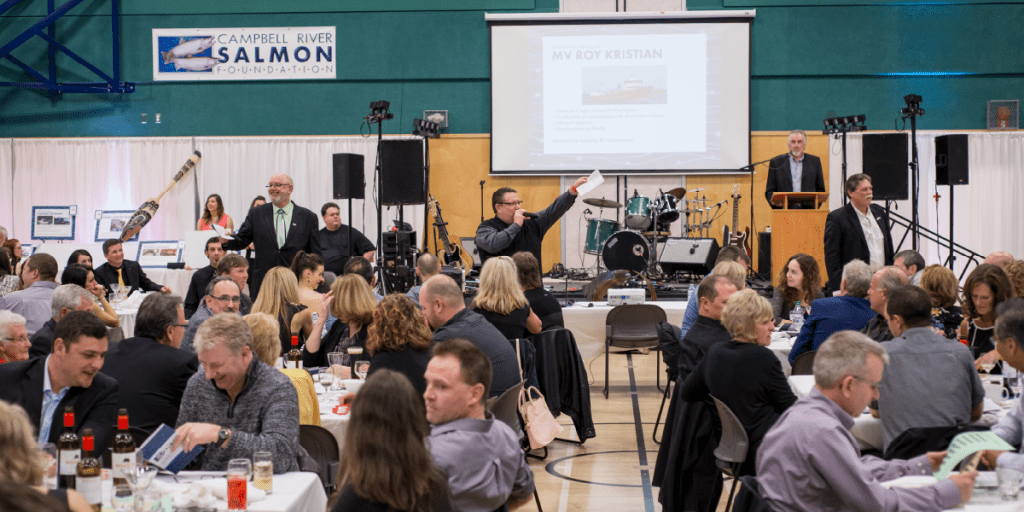Life on Vancouver Island ebbs and flows with the life-cycle of the salmon. In the warmth of the late-September sunshine, a friend and I walked a river trail hoping to see black bears fishing on the latest run of salmon. A few days of rain had swelled the river, opening the watery highway for the coho to start their ascent to their spawning beds. The forest blushed vibrant greens and the river chattered loudly. The smell of dead salmon from earlier runs wafted on the breeze. We saw our first bear from an elevated lookout point, fishing a tributary of the river. As we got closer, she disappeared. How can something so big and dark simply vanish within seconds and without a sound?
When you start looking, the bear’s path is obvious. Their soft, cushioned paws flatten the grassy riverbanks; their bulky, fur bodies create tunnels through the thick salmon berry shrubbery; and yet, they are quieter than the salmon. In this hushed stream, the salmon cast watery shadows on the sand below, sporadically breaking the surface of the river with their tail fins. That hypnotic sound of their undulating propulsion, that wiggles them upstream towards their spawning ground, is the pulse of all life on the river.
We saw the bear again, upstream, diving towards a splash of three shuddering fish, which escaped behind her. Her 180-degree leap was too slow, but she didn’t give up. She took her catch into the foliage and, later, tip-toed out for another snack. It was striking how the faintest of voices interrupted her fishing completely. All that focused fishing meditation shifted to high alert and awareness of possible encroaching predators. Many times, she left a perfectly abundant fishing spot due to the sound of oncoming friendly human chatter.
Our second bear sighting was a bigger female fishing in the main river and stashing fish in a pool on the opposite grassy riverbank. We understood why when the shrubbery 50 metres uphill shuddered and a cub emerged. Mamma bear kicked into high sensory detection, smelling with a nose that moves with astounding dexterity and obvious accuracy. Have you ever felt “smelled”? It’s more revealing than being seen.
My heart rate quickened as the cub retreated hastily. With the arrival of every enthusiastic photographer, mamma bear grew more cautious. I imagined her fishing with one ear for her cub, one ear for danger, her nose sensing everything, and her eyes constantly scanning the river. Every moment spent running to hide instead of fishing was energy wasted.
On Vancouver Island we walk freely along river trails, dense forests, and meadows that make up the bears’ fragile habitat. This is the opportunity for mamma bear and cubs to gorge on vital salmon calories. Soon they will need to scout for a den that has a smallenough entrance to keep predators out, yet a big-enough interior to spend three to four months hibernating. Thick, old growth cedar trees deep in the forest are prime bear real estate with optimal insulation for conserving energy.
Observing natural, imperative survival skills up close is humbling. We silently left our viewing spot, listening to eagles, ravens, and seagulls feasting on dead salmon. We avoided rotting salmon carcasses, at the end of their life-cycle, feeding the forest floor. As we stepped into the clearing of the car park, the magic lingered like unsettled dust in the sunlight and I made a wish that bears return to fish these rivers for the rest of time.

